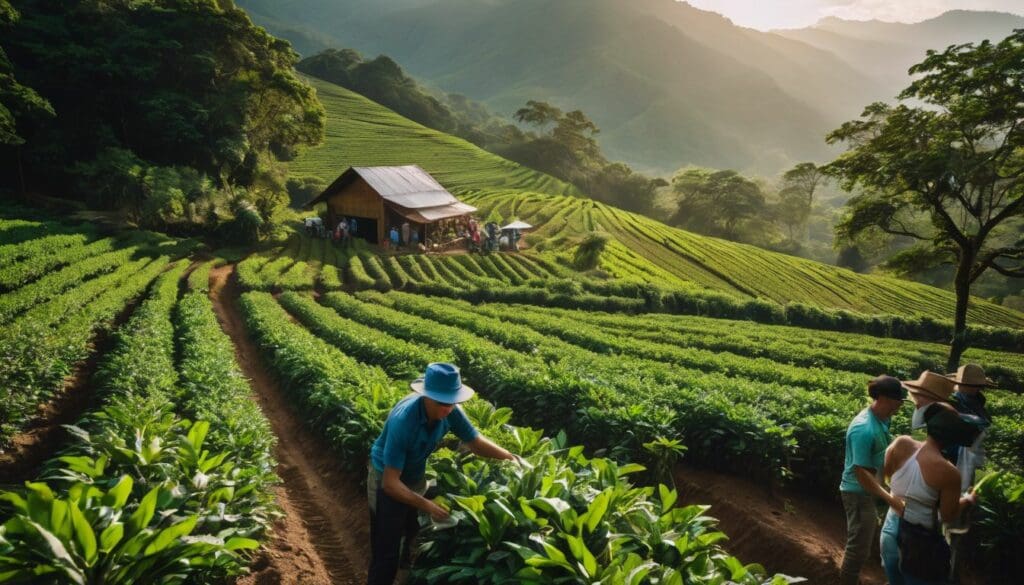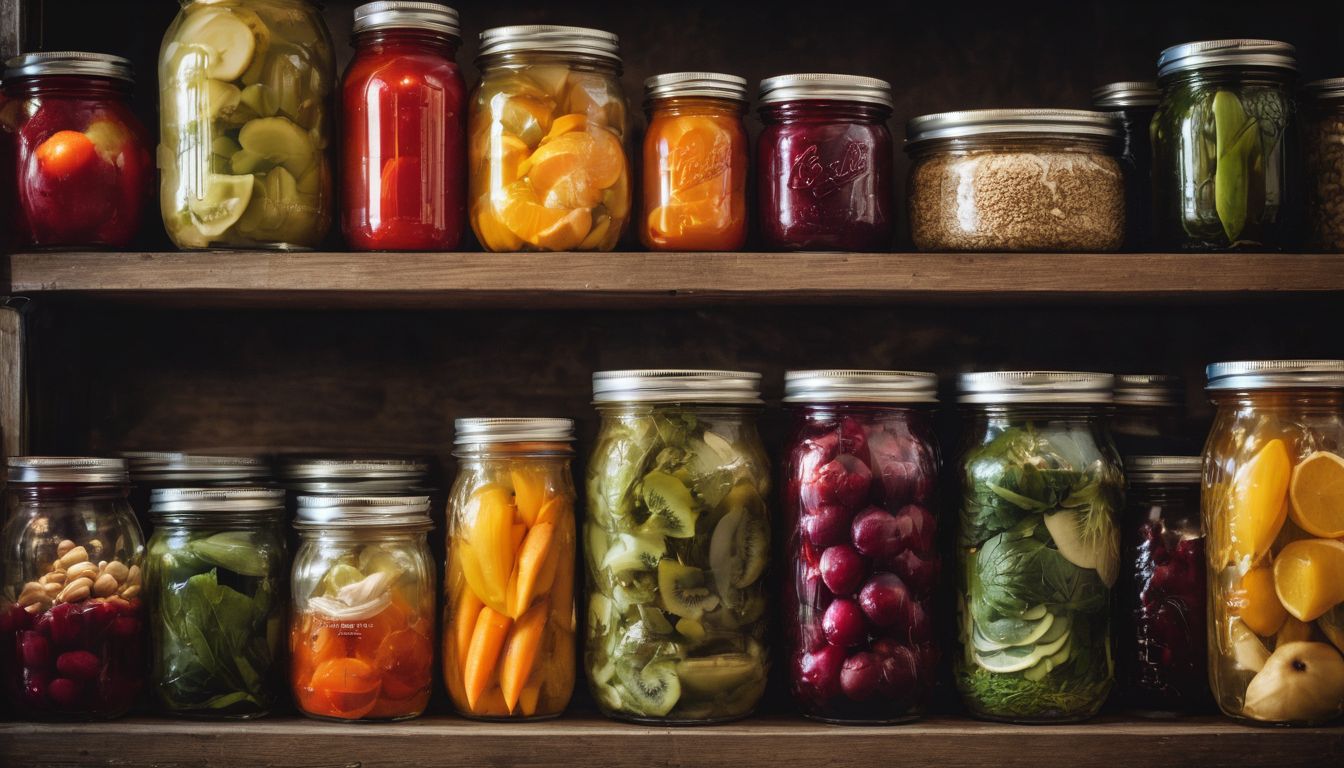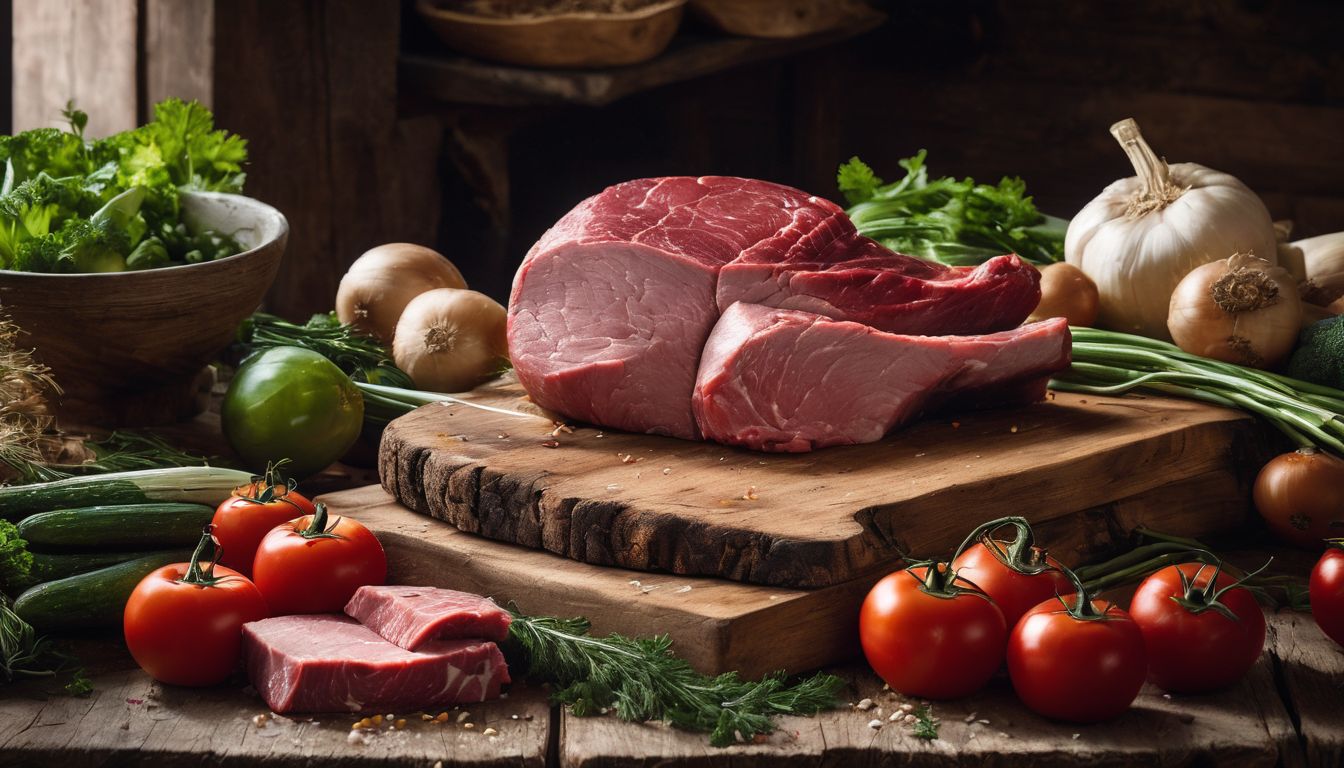Many of us enjoy a good cup of coffee, but we rarely ponder the journey from bean to mug. Worldwide, over 2 billion cups are consumed daily, often with little thought given to their origins.
This article will guide you through the meaning of ethical coffee sourcing and how it affects not only your brew but also global communities and ecosystems. Discover choices that make a difference – keep reading.
Key Takeaways
- Ethically sourced coffee prioritises fair compensation, safe working conditions for farmers, and environmentally sustainable practices.
- Consumers can identify ethically sourced coffee by looking for certifications like Fair Trade, Rainforest Alliance, or Organic on the packaging.
- Buying ethically sourced coffee with transparent supply chains allows consumers to trace their coffee back to its origin and ensure it is grown responsibly.
- Support for ethical sourcing contributes to improved livelihoods of small – scale farmers and has a positive impact on local economies in developing countries.
- Choosing sustainable packaging and supporting businesses that engage in direct trade relationships are additional ways consumers can contribute to ethical coffee sourcing.
Defining Ethically Sourced Coffee
Ethically sourced coffee refers to coffee that has been produced and traded in a way that is fair, transparent, and environmentally sustainable. This can include practices such as Fair Trade Certification, Direct Trade, and Relationship Coffee.
Fair Trade Certification
Fair Trade Certification stands as a shield for ethical coffee sourcing, assuring consumers that they are buying products from farmers and workers who receive fair pay and work in decent conditions.
This badge of honour signifies that strict social, economic, and environmental criteria have been met during production. It touches on vital aspects like protecting the environment by restricting harmful chemicals and ensuring safe working conditions.
Every purchase of fair trade certified coffee directly supports the improvement of living conditions for small-scale farmers by offering better prices and community development funds.
Farmers also gain access to credit lines at favourable rates through this system. Choosing Fair Trade means taking part in a global movement for ethical trade practices which promotes long-term partnerships between producers, traders, and companies focused on sustainable development goals.
Direct Trade
Direct trade coffee is a sourcing model where roasters buy directly from coffee producers, cutting out middlemen. This fosters a transparent and accountable supply chain that ensures fair prices for farmers.
By eliminating intermediaries, the direct trade approach allows roasters to build sustainable, long-term relationships with producers.
Through direct communication and collaboration, both parties can work together to improve farming practices and ensure high-quality coffee production. Direct trade also provides better livelihoods for farmers by offering them fair wages and investing in their communities’ development.
Relationship Coffee
Relationship coffee is a direct trade model that focuses on building long-term partnerships between coffee roasters and farmers. This approach ensures a transparent and mutually beneficial relationship, allowing for fair compensation and investment in sustainable farming practices.
By bypassing middlemen, relationship coffee empowers farmers to improve their livelihoods while guaranteeing consumers ethical sourcing with traceable origins. This promotes economic sustainability for small-scale farmers and helps in preserving the environment through responsible agricultural methods.
Recognising the significance of relationship coffee can lead to informed purchasing decisions, contributing to the well-being of farming communities and environmental conservation.
Why Ethical Coffee Sourcing is Important
Ethical coffee sourcing is important because it improves the lives of farmers, protects the environment, and brings economic benefits to communities. By choosing ethically sourced coffee, consumers can make a positive impact on these important issues.
Improving Lives of Farmers
Enhancing the lives of coffee farmers is a crucial aspect of ethical coffee sourcing. By supporting sustainable and responsible coffee producers, consumers contribute to creating better living conditions for small-scale farmers.
This includes fair compensation, access to education and healthcare, and promoting environmentally friendly farming practices. Ethical sourcing ensures that the economic sustainability of coffee farming communities is prioritised, leading to improved livelihoods and social well-being.
Creating positive change in the lives of farmers involves prioritising fair trade certification, direct trade relationships, and transparent supply chains. Consumers can make a tangible impact by choosing ethically sourced coffee, empowering farmers as stewards of their land while contributing to global conservation efforts.
Protecting the Environment
Coffee sourcing, when done ethically, can have a positive impact on the environment. Sustainable coffee sourcing practices promote biodiversity and protect natural habitats from deforestation and soil degradation.
By supporting transparent and traceable supply chains, consumers can ensure that their coffee comes from farms that prioritise eco-friendly growing methods, minimising water usage, reducing chemical inputs, and promoting agroforestry systems.
Ethical coffee production also encourages the use of renewable energy sources in processing facilities to lower carbon emissions. Additionally, by choosing fair trade or direct trade coffee, consumers contribute to the conservation of ecosystems and wildlife habitats in coffee-producing regions.
Economic Benefits
Ethical coffee sourcing provides economic benefits by ensuring that farmers receive fair compensation for their hard work. By supporting ethically sourced coffee, consumers contribute to the financial stability of small-scale farmers and their communities.
This helps create sustainable livelihoods and uplifts the local economy, promoting economic sustainability in coffee farming. Furthermore, ethical sourcing practices encourage transparency and traceability in the supply chain, fostering a more equitable distribution of profits among all players involved.
Considering the economic advantages is vital for environmentally conscious individuals who aim to support conservation efforts through ethical consumerism. Understanding how ethically sourced coffee positively impacts farmers’ lives and economies can empower consumers to make informed choices that align with their values and promote environmental stewardship.
Factors to Consider for Ethically Sourced Coffee
When choosing ethically sourced coffee, consider factors such as sustainable packaging and transparency in the supply chain. To learn more about making ethical coffee choices as a consumer, keep reading.
Sustainable Packaging
When choosing ethically sourced coffee, consider the packaging it comes in. Look for coffee with sustainable packaging that minimises environmental impact. Sustainable packaging includes options such as biodegradable or compostable materials, recyclable packaging, and minimal use of plastic.
By opting for coffee with sustainable packaging, you can support environmentally responsible practices within the coffee industry and reduce your ecological footprint.
Coffee companies committed to sustainable packaging often prioritise eco-friendly materials and designs that promote recycling and waste reduction. These efforts contribute to a more ethical supply chain by minimising the environmental impact of their products from production to disposal, aligning with the values of environmentally conscious consumers who seek to support conservation and environmental protection.
Transparency and Traceability
Coffee sourced ethically should have transparent supply chains, allowing consumers to trace the beans back to their origins. Transparent sourcing ensures that farmers are paid fair prices and work in safe conditions.
By choosing coffee with clear traceability, consumers can be confident that they are supporting ethical and sustainable practices within the industry.
Understanding the journey of your coffee from farm to cup is crucial for making informed choices that align with your environmental and social values. Traceable sourcing empowers consumers to support small-scale farmers and environmentally responsible practices throughout the coffee supply chain, ultimately contributing to a more sustainable future for all stakeholders involved.
Potential Disadvantages of Inadequate Sourcing Practices
Inadequate coffee sourcing practices can lead to the exploitation of farmers and environmental degradation. To learn more about the importance of ethical coffee sourcing, continue reading our blog.
Exploitation of Farmers
Unethical coffee sourcing can lead to the exploitation of farmers in developing countries. They may be paid below a living wage or forced to work in unsafe conditions. This can perpetuate poverty and prevent them from investing in sustainable farming practices, perpetuating environmental degradation.
Aiming for ethically sourced coffee is vital in preventing the exploitation of vulnerable farmers. By choosing transparent and traceable coffee sourcing, consumers can support fair compensation and ethical labor practices within the industry while protecting both people and the environment.
Moving on to “Environmental Degradation”..
Environmental Degradation
Unethical coffee sourcing practices contribute to environmental degradation, including deforestation, soil erosion, and loss of biodiversity. Pesticide use in conventional coffee farming can contaminate water sources and harm local ecosystems.
The excessive water consumption during the processing of non-sustainable coffee beans exacerbates water scarcity in regions where they are grown.
These damaging effects on the environment highlight the importance of choosing ethically sourced coffee that promotes sustainable farming methods, protects natural habitats, and minimises ecological impact.
Making Ethical Coffee Choices as a Consumer
Recognising Ethical Labels, Supporting Sustainable Coffee Businesses, Alternatives to Traditional Coffee Sourcing Models. Join us in making a positive impact with your coffee choices!
Recognising Ethical Labels
Recognising ethical labels on coffee packaging is essential for environmentally conscious consumers. Look for certifications such as Fair Trade, Rainforest Alliance, or Organic, which indicate that the coffee has been produced using socially responsible and environmentally friendly practices.
By choosing these labelled coffees, you can support sustainable sourcing and ensure that your purchase benefits both farmers and the environment.
In addition to certifications, transparency in the supply chain can also signal ethical sourcing. Companies that provide information about their coffee’s origins and production methods demonstrate a commitment to fair practices.
Supporting Sustainable Coffee Businesses
Consumers can support sustainable coffee businesses by choosing to buy coffee from companies that prioritise ethical sourcing. By purchasing coffee from these businesses, consumers contribute to the economic empowerment of small-scale farmers and help protect the environment.
Additionally, supporting sustainable coffee businesses encourages transparency in the supply chain and aids in promoting fair trade practices within the industry.
In making ethical choices as a consumer, one can look for certifications such as Fair Trade or Rainforest Alliance when purchasing coffee products. Furthermore, seeking out brands that directly engage with smallholder farmers and invest in sustainable farming practices is crucial.
By doing so, consumers play an active role in fostering a more equitable and environmentally responsible coffee industry.
Alternatives to Traditional Coffee Sourcing Models
Supporting sustainable coffee businesses is crucial, but exploring alternatives to traditional sourcing models can further enhance the impact of ethical coffee choices. Embracing direct trade relationships with coffee farmers allows for fair compensation and better traceability throughout the supply chain.
Moreover, investing in cooperative farming practices fosters community development and empowers small-scale growers, ultimately contributing to a more sustainable coffee industry.
Implementing innovative approaches such as agroforestry and shade-grown cultivation techniques not only promote biodiversity but also mitigate the environmental impact of coffee production.
Conclusion
Choosing ethically sourced coffee empowers consumers to make a positive impact. Consumers can support fair trade and direct trade models, benefiting farmers and the environment. By being mindful of ethical labels and sustainable practices, consumers contribute to a more socially responsible coffee industry.
Making informed choices fosters a sense of responsibility towards global sustainability efforts. Together, consumers play an important role in promoting ethical coffee sourcing practices worldwide.
FAQs
1. What is ethical coffee sourcing?
Ethical coffee sourcing ensures that the production of coffee supports fair trade, improves living conditions for small farmers, and follows socially responsible practices.
2. Why should consumers care about ethical coffee production?
Consumers should care because buying ethically sourced coffee means supporting transparency in the supply chain and promoting better treatment of farmers.
3. Does ethical coffee taste different?
No, the taste isn’t necessarily different, but choosing ethical coffee lets you enjoy your brew knowing it’s from a socially responsible source.
4. Can I find out where my ethically sourced coffee comes from?
Yes! Ethical sourcing often includes traceability in the supply chain, allowing you to know exactly where your coffee was grown and who produced it.
5. How does buying fair trade impact farmers?
When you buy fair trade coffee, you’re directly contributing to improved living conditions and financial stability for small-scale farmers and their communities.





